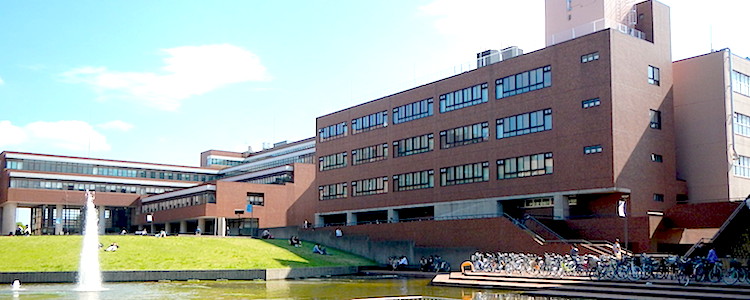
The Planet of Year 2100 Is on Our Shoulders!
Since the establishment of the first specialized graduate school focusing on environmental education at the University of Tsukuba in 1977, the degree programs in Environmental Sciences and Environmental Studies have been made every effort to nurture talents through research and education to address environmental issues. However, in recent years, the global and regional environments have been undergoing tremendous changes. Therefore, to benefit the future development of our planet and local community for the next 100 years, the degree programs have set clear goals to maximize the accumulated expertise and to advance talent cultivation.
Primary Mission
We are aiming to advance both knowledge and technology and to develop talents who are capable of handing over a better hometown or local community to people in 2100, enabling them to feel grateful for living on the planet.
Concrete Approaches to Achieving the Primary Mission
We are always facing new and diverse environmental problems varying from individual regions to global scales.
Therefore, the degree programs in Environmental Sciences and Environmental Studies aim to nurture talents who are keen on finding solutions to current and future environmental problems. As such, our primary goal is to develop talents who can understand diverse values and social situations, who can respect individuals with different backgrounds and perspectives, and who can collaborate.
To achieve this goal, the degree programs in Environmental Sciences and Environmental Studies are committed to enhancing three types of communication: (1) interdisciplinary communication, (2) international communication, and (3) communication with the society.
Firstly, the curriculum is designed to empower students to study academic subjects at different scales ranging from cellular level on life activities to global scale. Moreover, the curriculum can systematically guide the students to learn about “Environmental Studies and Environmental Sciences” from a fundamental understanding of the natural environment to a comprehensive evaluation of human impacts on the environment with corresponding solutions. In addition to classroom lectures, the degree programs also provide practical trainings including field internships and exercises through group working.
Secondly, the curriculum integrates lectures and discussions conducted in English enabling students to improve their international communication skills. At the same time, we actively welcome international students from many countries, particularly in Asia and Africa. This approach can promote international communication through collaborative research and internships with overseas institutions.
Finally, in addition to the joint research with companies and national research institutes, the degree programs extend opportunities to working students and facilitate diverse exchanges including internships at companies and national research institutes, and lectures by government officials, researchers, and engineers from external institutions. Furthermore, the degree programs have established a system that enables working students to continuously acquire the latest knowledge, engage in research, and contribute to technological development towards finding solutions to the environmental issues in their respective fields.
Introduce the degree program
English subtitles
Chinese subtitles
Master’s Program in Environmental Sciences
Program OutlineThe Master’s Program in Environmental Sciences was founded in 1977 to provide advanced education for graduates and professional development for environmental practitioners. Due to its consistently high achievement, the program was incorporated into the Master’s program of the Graduate school of Life and Environmental Sciences in 2007. This program accepts students through general examination, cooperative graduate school examination, foreign student examination, career student examination and examination for the international collaborative program of environmental sciences and undertakes professional development and education of environmental practitioners. Applicants from either humanities or the sciences may be admitted to this program, if they have the academic ability and wish to pursue environmental science which focuses on social contribution and the practical resolution of environmental problems.
Doctoral Program in Environmental Studies
Program OutlineThis program accepts students who have obtained a master’s degree or its equivalent in a related field. This program accepts students via general examination, cooperative graduate school examination, foreign student examination, career student examination and examination for the international collaborative program of environmental sciences and undertakes advanced professional development and education of environmental practitioners. Applicants from either humanities or the sciences may be admitted to this program, if they have the academic ability and wish to pursue environmental science which focuses on social contribution and the practical resolution of environmental problems.

